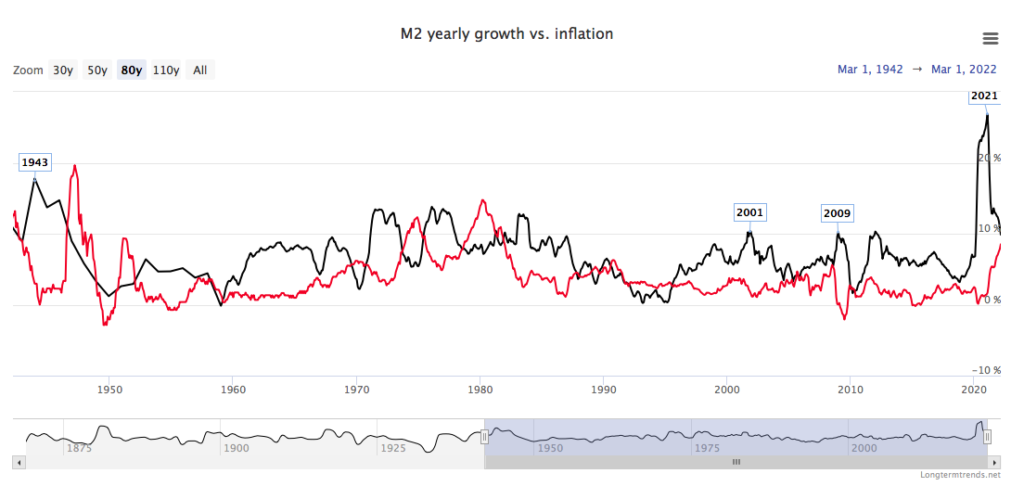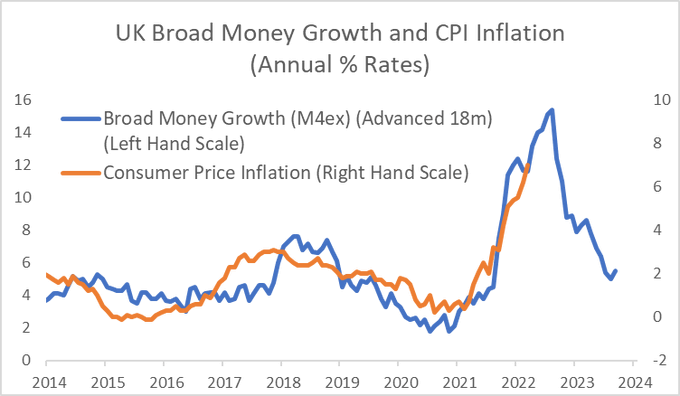Julian Assange is on the verge (as he has been for ten years, but this time for real) of being extradited from the UK to the US. The question I ask is, has he done anything wrong?
If it were the case that he had supplied information that would have been useful to a hostile power then I would say hang the bastard. But that is not what the US government is accusing him of. The accusation is that he helped to steal the information. Now, if someone steals my stuff, I want them to have their hands cut off. Along with a few other appendages. But Assange “stole” information not stuff. And remember the US government is not claiming that that information would have been useful to a foreign power.
Which puts a rather different gloss on things. US government information is – if we are to take the US government’s own position seriously – owned by the US people. They have every right to see it. More or less. As well as military secrets there may be commercial contracts which – possibly – they don’t want to disclose. For instance, one of my frustrations in the UK was that you couldn’t inspect the contract of a Train Operating Company because it was deemed to be “commercially confidential”. Whatever, it doesn’t apply in this case.
So, it would appear that all Assange has done is to supply the US population with something it already owned and had every right to have.
Have I got that right?
|
|||||
Of course, there are significant differences. The German army, for instance, never suffered from massive corruption and incompetence. And this time there aren’t multiple belligerent powers. But if the similarities hold does this mean that we can look forward to a stalemate that lasts four years, kills millions and doesn’t really resolve anything? Does it mean we’ll have to do it all over again in 20 years? Let’s hope not but there’s another similarity which may play a part here. As Perun has pointed out, Ukraine – believe it or not – can call on greater military resources than Russia. It already has a larger army and if the West supplies it properly it will have more and better military hardware to bring to bear. And morale will be no contest. This would make it much the same as the situation in 1918. It took the Western allies 3 years to develop the war industries they needed but when they unleashed their superior military resources, allied to an effective tactical doctrine, the Germans were powerless to resist. To the best of my knowledge the Ukrainians are yet to enjoy any major offensive successes. So, for the time being we’re very much in the 1915 part of this analogy.
As a supplement to Johnathan’s post. A couple of points:
Update 10/5/22. As Douglas2 points out this is a graph for the US. Ugh. Luckily TomJ has found a graph for the UK which looks like this: This is very similar so long as you are aware that the blue line has been moved 18 months to the right. It also suggests that this bout of inflation is likely to be short-lived. In the course of the Ukraine War, Vladimir Putin, Russia’s dictator, has from time to time hinted that he is prepared to use nuclear weapons. There is a tendency to downplay this. Many believe these are idle threats. When I hear this sort of talk I am reminded of the words of the late Helen Szamuely, “They mean it!” she would say. Having been partially educated in Moscow Szamuely knew what she was talking about. Not that we need her wise words. Just before the war, Mark Steyn interviewed his old boss, Conrad Black, on GB News. Black opined that Putin’s sabre rattling was “Kabuki theatre” or some such. As we now know, it wasn’t. He meant it. But whether he means it or not we should at least be prepared. What would he do first? Would he, for instance, use a tactical nuclear weapon to eliminate Ukrainian forces in front of him? Or we he indulge in nuclear blackmail: surrender or Kiev gets it? And what does the West – by which I suppose I mean the United States – do? If it’s a tactical nuke I suppose it could offer to supply Ukraine with tactical nukes of its own. But how keen would Ukrainians be to nuke their own territory? If it’s the blackmail option, does the West really threaten a nuclear response? Would such a threat be credible? In the Cold War I was never particularly worried. I knew that if the Russians dropped the bomb on us we would drop the bomb on them. And I knew that the Russians knew that, so they wouldn’t. Now, things are not so clear. Update 2/5/22 It’s very difficult to argue with Niall when he says, “The logic of deterrence is as valid as ever it was. The more the west radiates a will to react, the less likely Putin is to act. And the best way to radiate a will to react is to have the will to react.” Also, thank you to Subotai Bahadur for his lengthy comment in which he points out that the nuclear club – both official and unofficial – is likely to get quite a bit bigger. A lot of people in the media are calling it the “cost of living crisis” but us lot who were around in the 1970s know it as “inflation”. Back then – if the government’s figures are/were to be believed – it peaked at 25%. The 1970s were a pretty horrible decade all round. As well as inflation, there were constant strikes, bankrupt nationalised industries and a general air of doom. A Samizdata contributor, growing up in France even had an economics text book with a chapter entitled, “Britain: headed for the Third World?” Since the mid-1980s inflation has been much lower. It’s been present but until now it has been far less of a day-to-day problem. So, what happened? The Thatcher government put up interest rates. For reasons that I may have once understood, but no longer do, this reduced inflation. But it came at a price. Huge numbers of businesses went bust or reduced their workforces. Unemployment skyrocketed. By the mid-1980s growth had returned but many previously industrialised areas did not recover and still haven’t. I doubt they ever will. Are there lessons in this? Harbingers more like. Interest rates have been very low for a very long time. Homeowners – as opposed to businesses last time round – have borrowed a lot. If you are on an average income and want to own your own house and bring up a family that is what you have to do. Should interest rates go up, millions will find they cannot pay their mortgages. A cynic might argue that at least in the 1980s, the pain was borne by people who weren’t going to vote Conservative anyway. This time, that’s not so clear. Update 16/4/22. I see from the comments that a lot of people in the US have fixed rate mortgages. Very sensible. I wonder if that is the case here in the UK? Also, how easy is for banks to call a loan in? It occurs to me that lots of people with fixed-rate mortgages might not be all that good a get-out-of-jail-free card. If interest rates do go up that would severely depress house prices. Sure, homeowners would still be able to pay off their mortgages but their properties would be worth a lot less. Homeowners of course are not the only borrowers. A few years ago – when I was into this sort of thing – I came across a couple of reasonably-large, barely-profitable companies with large amounts of debt that periodically needed to be refinanced. If interest rates go up they would be in a lot of trouble. I wonder how prevalent this is? We don’t know what exactly was in Putin’s mind when he decided to invade Ukraine but despite some initial scepticism on my part it looks awfully like he did want some sort of swift victory in which he either conquered the whole country or perhaps just the eastern half plus Kiev. If that indeed was the aim, he’s failed. In doing so he has underestimated the West. This week marks 40 years since something similar happened in the South Atlantic. When Argentina’s Junta decided to invade the Falklands they thought it would be a cakewalk. It had never occurred to them that Britain might fight. Ten weeks later the Falklands were back in British hands and the Junta were out of office. They too had underestimated the West. They’d also got the timing horribly wrong. If they had been a bit more patient, Britain would have gifted them the islands. Any other examples? Hitler? Ach, let’s not do Hitler. Saddam Hussein certainly got it all wrong when he invaded Kuwait. Milosevic? From what I can work out he did nothing but underestimate his opponents. Does it work historically? Off the top of my head, Cromwell would seem to be the first modern dictator. He had the good sense not to go to war against another state (or did he? What about the Dutch? We were always fighting the Dutch in those days weren’t we?) Whatever, probably not a disaster. And let’s face it, they didn’t have bolts to shoot in Cromwell’s day. Napoleon famously got it wrong when he invaded Russia. But did he have a choice? It occurs to me, while proposing this grand theory, that Putin may have done the precise opposite of shooting his bolt. Far from having too little patience he may have had too much. Would anyone have stopped him if he’d tried this in the wake of Maidan? Update Turns out that Cromwell did indeed go to war with the Dutch. Update 2/4/22 Lots of good comments mostly telling me how wrong I am which is a Good Thing, even if I have to say it through gritted teeth. I particularly liked this from Chester Draws, “In the west individuals have shorter attentions, because fortunately they stay in power less long, but parties can keep it up far longer than individuals. The Democrats in the US are playing a very long game, quite independent of who their leader is.”
Dominic Cummings was completely right in his belief that ‘Generally, the better educated are more prone to irrational political opinions and political hysteria than the worse educated’. The history of communism is the most obvious example, Bolshevism being a student cult that was passionately believed in by some very intelligent, brilliant people long after it was exposed as a disaster. – Ed West The internet is awash with armchair generals (not that there’s anything wrong with being an armchair general – I am one myself) telling us that the Russian invasion of Ukraine is not going according to plan. They point out that the frontlines have barely moved in the last week, that a lot of Russian vehicles have been knocked out or broken down, that the Russian air force seems to be absent and various other things (twenty-year old rations is one of my favourites.) Some are even suggesting that the Russians might get kicked out of Ukraine. I, and I am sure most Samizdatistas, would dearly like this to be true. But the facts don’t care about our beliefs. The truth may be very different. So, if you are looking for an antedote to the narrative I would suggest checking out Task & Purpose’s YouTube on the subject. He points out that the Russians have had victories and that during the Iraq War there was a similar narrative about the allies being bogged down when they were nothing of the sort. The thing I really like about it is that he – that would be presenter Chris Cappy, an Iraq War veteran – admits that he doesn’t know what’s going on. And that’s kind of the point.
I’ve seen this idea expressed a couple of times in the last day. Here’s Nigel Farage:
The Daily Sceptic, which is really branching out now that most Covid-related restrictions have ended – and in ways I tend to agree with – has a whole article speculating that Putin is paranoid about his health and further speculating that this has sent Putin a bit mad. I don’t think we have to assume a lunatic in the Kremlin to explain what is going on. Imagine for a minute, you are a Russian imperialist. You have no time for this democracy crap. You have no time for this self-determination crap, or this international law crap. You regard it as Russia’s manifest destiny to rule over Ukraine, Belarus, the Baltic States and a few other places. You look at your opposition, the West. These are people who are bankrupt. They argue about whether men should be allowed to use women’s toilets. They have elites who despise the populations they govern and the customs and traditions that made their countries strong. They have universities that have become communist re-education camps. They fritter away their prosperity on wind farms and useless railways and welfare. They spend little on defence and when they do it is mostly on making sure that their forces embrace diversity. Almost all of them are to a greater or lesser extent dependent on your natural resources. And the “leader” of this rabble is at best a stubborn, wishy-washy, incompetent. And you say to yourself “Why shouldn’t I go to war? Who is going to stop me?” P.S. Having drafted this I tuned into YouTube to find that David Starkey has made much the same point but much more eloquently than I ever could.
That’s Konstantin on Triggernometry’s YouTube on Ukraine. Lots of good, thoughtful stuff on Putin, Western weakness and everything in between. Well, not so much on that country in between, you know, Ukraine which is all the more remarkable when you consider that Konstantin has Russian-speaking family there. But, as he says, he doesn’t think people in the West are particularly interested in what is best for Konstantin’s family. Update Maybe that title (see comments) should be toned down.
Update 13/1/22 I notice that the subject of “early treatment” has come up. First of all, what constitutes “early treatment”? Secondly, what do we know about their effectiveness? I guess we’re talking about hydroxychloriquine, ivermectin and zinc. Are there any studies pointing to their effectiveness? Any studies saying the opposite. Whatever the case may be you would have thought that if the government genuinely wanted a quick resolution to the [I was going to say “crisis” but that’s controversial] problem they would have said, “Well, that’s interesting let’s do some studies as quickly as possible.” Instead – if memory serves – they said, “Move along, nothing to see here, conspiracy theory.” Which is kind of suspicious. |
|||||

All content on this website (including text, photographs, audio files, and any other original works), unless otherwise noted, is licensed under a Creative Commons License. |
|||||





